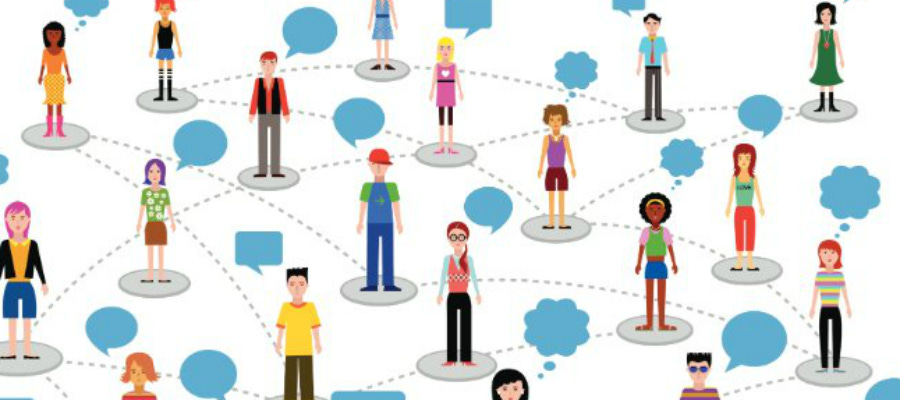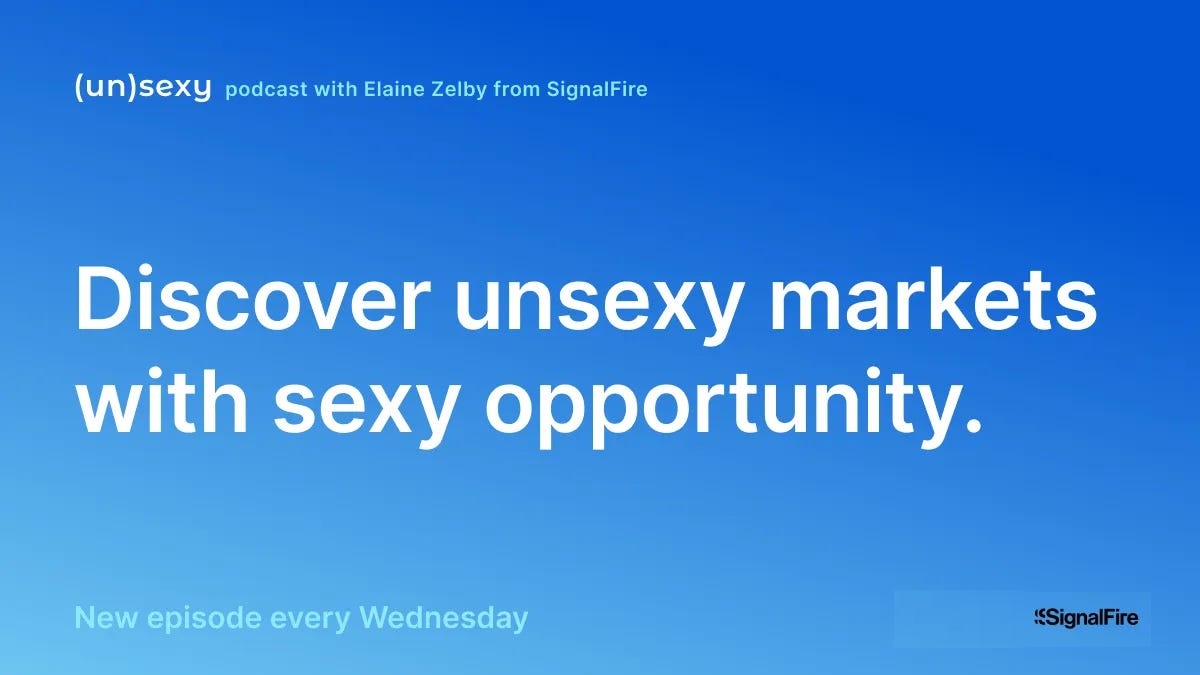3 Things: LLMs for Talk Summaries, Service Provider Referrals, Hypnotherapy for Weight Loss
Happy Sunday and a very warm welcome to all the new subscribers! I’m thrilled and honored to have you as readers and truly appreciate your thoughts and feedback 🙏. Each edition of 3 Things will contain a dive into 3 rabbit holes I’ve found myself going down recently and associated business opportunities. Subscribe to get each week’s edition straight to your inbox and if you enjoy it, please share (I suck at self-promotion so can use your help)! This past week I’ve been thinking a lot about:
LLMs for Conference Talk Summaries
Service Provider Referrals
Hypnotherapy for Weight Loss
1. LLMs for Conference Talk Summaries
Much of the startup and venture ecosystems go from one shiny object to the next 😂 In the last 2 years alone it was first “creator economy”, then web3, now it’s anything to do with Large Language Models (LLMs) and generative AI. Since 2018 with the introduction of Google’s BERT (transformer-based model for NLP pre-training) and OpenAI’s GPT (generative language model), these models have come a long way. There are now at least a dozen foundation models for speech, text, image, and video generation, summarization, and classification that are getting insanely good. With the amount of VC dollars and extremely talented engineers pouring into the space, they will only continue to improve at a rapid clip as teams build new foundation models as well as applications on top that leverage and fine-tune the models for specific use cases. The most mature spaces today from an application perspective revolve around text and focus on content writing (Jasper.ai, Copy.ai), code generation (Copilot, Tabnine, MutableAI), enterprise search (Glean, Hebbia, Mem), and similar categories.
Most energy today has been poured into text generation and discovery but I think there are tons of use cases around summarization. Many industries involve a TON of documents that need to be distilled into core bullets and the entire web is filled with long-form content as Google incentivized longer articles for it’s search rank algorithm. There are cool extensions like Summari which auto-summarizes contents of a webpage (still pretty early) and many of the video call transcription companies like Otter.ai try to extract the most important pieces of the call. One area that I think is perfectly ripe for a tool like this is conference talks. There is SUCH a wealth of information that gets shared by experts at conferences (both physical and digital) and most of it never gets distributed beyond the folks in the session, which is a waste. The transcription tech is both good enough and cheap enough that you could provide a purpose built solution that takes conference talks (single and multi-person) and summarizes, categorizes, and organizes the information. You could start by taking the talks that get posted to YouTube and focus on a specific industry. From there, branch into other verticals and become a go-to source of quality information on nearly any business or tech-related topic from experts.
2. Service Provider Referrals
There are plenty of marketplaces that have achieved great success aggregating service providers across broad categories like Angi, Upwork, Yelp, or TaskRabbit. These types of professionals range from plumbers, furniture assemblers, solar installers, and electricians to hairstylists, copywriters, graphic designers, private chefs, and much, much more. The challenge with services businesses is that you’re constantly needing to acquire new customers as most of these services are non-recurring, and often they are hyper-local as the services must be rendered at a specific location in person. These companies are often small businesses and not great at marketing and sales. This is why marketplaces are valuable and why reviews, ratings, and scores are so important. Companies have tried to unbundle these massive marketplaces focusing on a specific type of provider such as Turing or Lemon.io for remote engineers, Awesomic for designers or Havenly for interior decorators. At the end of the day, they’re just a more focused and potentially curated version of a generic marketplace.
When it comes to choosing a service professional, the vast majority of decision making comes down to social proof. Most people are in numerous WhatsApp groups, Slack channels, and Discord servers in addition to being active on social media like Facebook, Instagram, Twitter, Reddit. Plus they participate in physical IRL community among friends family and people who share similar interests or beliefs. In my experience, nearly everyone first tries word-of-mouth referrals before going to a digital marketplace and from the supply side, they’d always prefer a customer coming direct without having to do marketing or pay the platform fees. The modern age of social media means that we all have an extensive social graph that exists across channels and networks. A next-gen Angi or Yelp could be built focusing on your personal social graph to source recommendations. You’d connect all your social accounts and communities and when you search for a service professional, you’d see who your social circle has used and recommends. There could be message functionality for you to ask questions and to incentivize people to leave reviews and recommendations, you could offer referral rewards just like e-comm does with referral codes. In the onboarding, you could have members provide info on who they’ve used for a variety of categories (hairdresser, plumber, moving company, dogwalker, etc) and prompt them to fill in a few to complete profile setup. Just like any marketplace, you’d monetize by managing bookings and payments and take a cut of all sales.
3. Hypnotherapy for Weight Loss
The #1 self-improvement goal year-after-year is to lose weight. We live in a society where roughly 70% of Americans are overweight and that number keeps going up not down. People want to lose weight not only for vanity reasons; there are massive health implications of being overweight or obese such as hypertension, diabetes, heart disease, and 60 other chronic diseases. Obesity costs the US $175B+ annually and the direct and indirect costs of diabetes are an astounding $327B (over 1/4 of all healthcare dollars are spent on diabetes). It’s hard to lose weight and keep it off as it requires a true behavioral shift around diet, exercise, and lifestyle. The concept of “food as medicine” has been gaining steam given how much of healthcare costs can be avoided if people had proper nutrition for whatever their individual need may be. But, for most overweight adults, just knowing what to eat isn’t enough. Many companies such as Form, Calibrate, Noom, and more add in components like medication, coaching, community, and digital therapeutics to help their users get to their goal weight.
When it comes to behavior change, one emerging area of research is around hypnotherapy. Hypnosis as a medical treatment dates all the way back to the late 1700s with Franz Mesmer practicing what was referred to as Mesmerism (sound familiar??). Going well beyond the images we may have of an old man swinging a pocket watch back and forth saying “you are getting very sleepy”, hypnotherapy in its modern form has been shown to have dramatic impacts on many conditions like smoking cessation, PTSD, anxiety, menopausal hot flashes, IBS, and weight loss. The practice of hypnotherapy involves putting a person in a heightened state of concentration and focused attention, guided by a trained hypnotherapist. Companies like Mindset Health are already providing hypnotherapy as a digital therapeutic for IBS (irritable bowel syndrome) and seeing amazing success. A company could focus on weight loss using hypnotherapy techniques paired with nutrition coaching and community to provide a holistic digital therapeutic solution. You could add in your own meal kits or meal-planning/digital shopping list and exercise programs to make it easier for users to make the right choices and effectively lose weight.
That’s all for today! If you have thoughts, comments, or want to get in touch, find me on Twitter at @ezelby and if you enjoyed this, please subscribe and share with a friend or two!
~ Elaine
New podcast!
From scrap metal to timber, estate planning to freight pooling, the new (un)sexy podcast is a meandering exploration of just how sexy unsexy industries can be.
Join us weekly as we uncover stories of niche and esoteric markets, understanding their history and looking at the future through the eyes of the pioneering entrepreneurs willing to bring technology and exponential improvements to these often overlooked spaces.
Listen now on Spotify, Apple, Google, or wherever you listen to podcasts.




